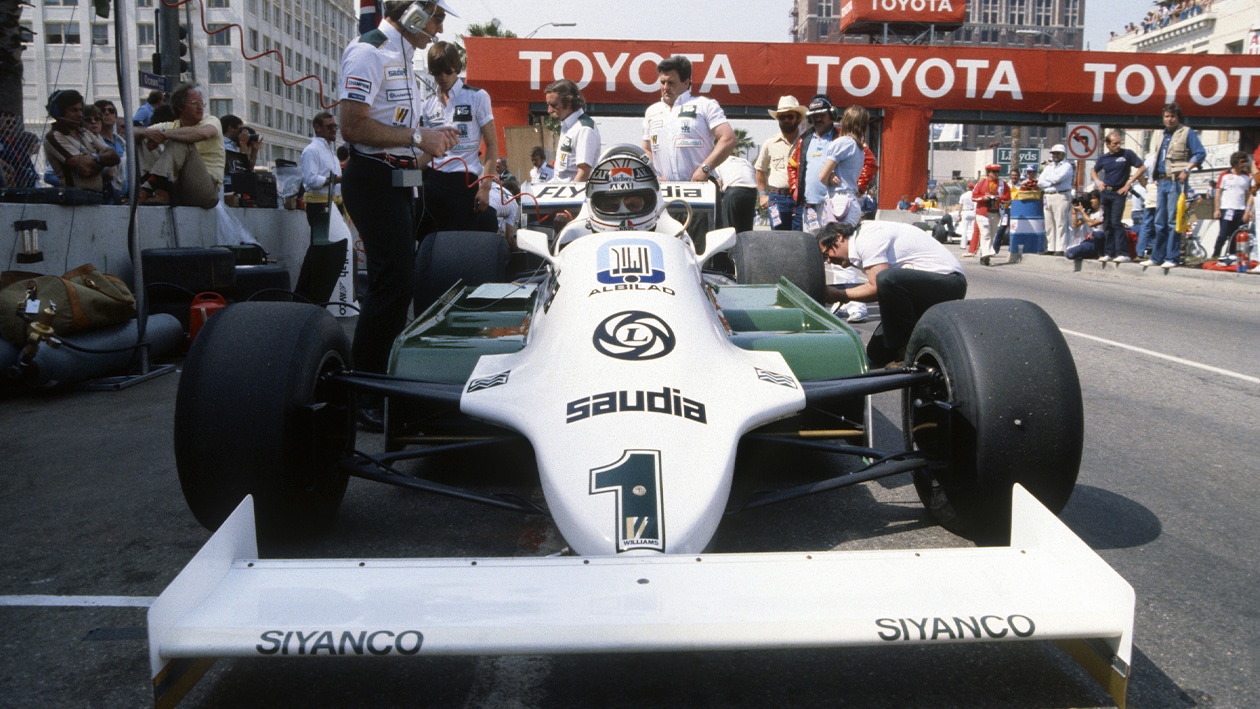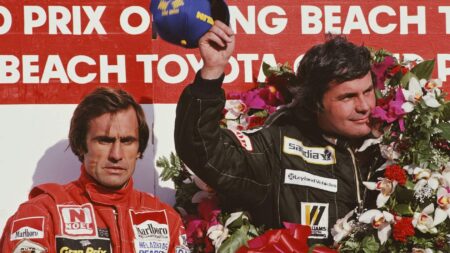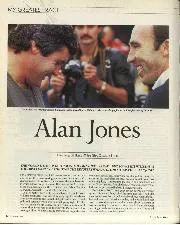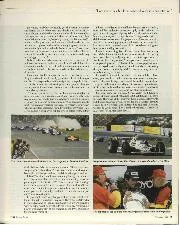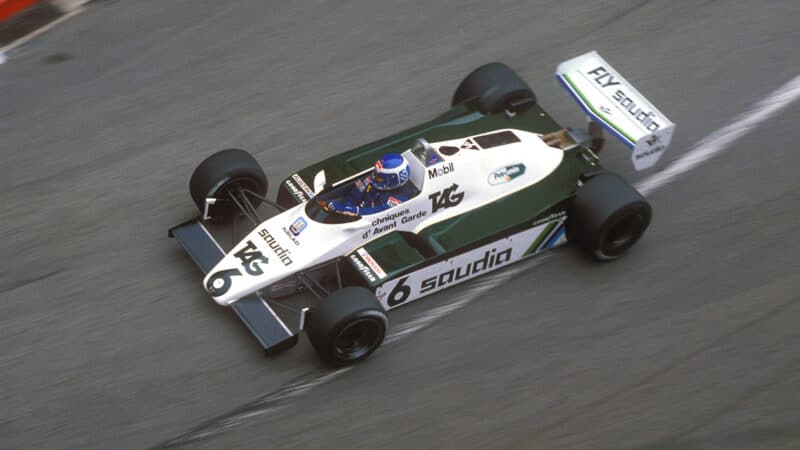“Where the hell was I going to find a world-class replacement for him at that stage of the year?” Frank raged. “It was grossly inconsiderate — typical of bloody racing drivers…”
A few days afterwards, Alan had his press conference, and it was a remarkably straightforward affair. Where Stewart, Hunt and Scheckter had given their reason for leaving the sport as a simple desire to survive it, Jones was simply homesick.
“The danger part of it never really came into my thinking,” he said. “I’ve never dwelt on that during my career — a certain number of accidents are inevitable. Actually, I worry more about what these stupid ‘go kart’ cars are doing to my spine over time than about having a shunt. Other factors come into it, sure, but the main thing is simply that I want to go back and live in Australia.”
So there it was. No great soul-searching, no blinding flash of light.
He had won the world title, made some money, and now he wanted time and opportunity to enjoy it.
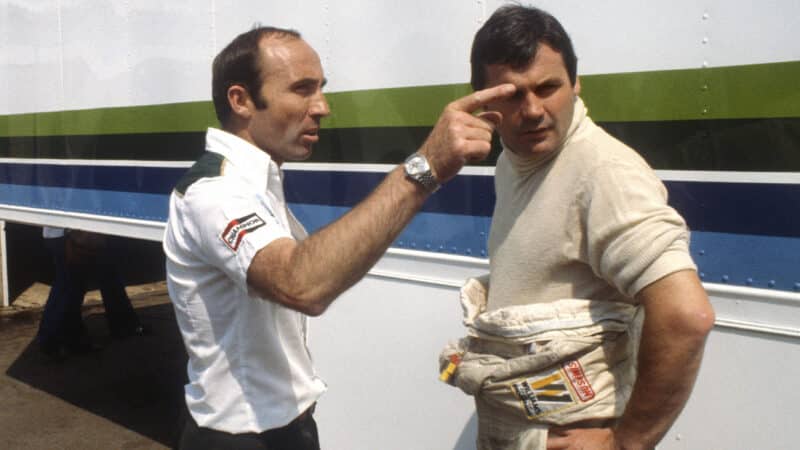
Williams and AJ made a great team
Grand Prix Photo
A few months earlier, we had discussed the possibility of his retirement at the year’s end, and he had said that racing still outweighed the other side of his life — but allowing that the ‘other side’ had gained a few points recently.
What had changed?
“Well, to be honest, I wanted to retire — and yet I didn’t! Every time I’d pick up the phone to tell Frank, I would get butterflies and hang up — not because I was scared of facing his wrath, but because I just didn’t want to face the decision. I knew it was probably the biggest I was ever going to have to face in my life. I mean, you can buy a house or a car, and if it’s no good you sell it. But this was a fairly final situation.
“We’re only on this earth for a short amount of time. You should be doing what you want to do for as much of it as possible”
“So, although I verbally agreed terms to stay with the Williams team for ‘82 —which I sort of wanted to do — I started giving long, hard thought to it immediately afterwards. I concluded that if I was going to stop racing, I had to let Frank know by Monza, to give him a chance to get a replacement. And, in fact, I know I should’ve let him know earlier.
“I actually told him on Thursday night at Monza, and promised a final answer within a few days. He told me not to do it over the weekend, because it would be silly to chuck it in just through having a bad race, or something like that.
“He told me to go back to London, and spend a day thinking about it there. But that was probably the worst thing that could have happened. It was my boy’s birthday on the Monday; we all had party hats on — and then it started to piss down! We had to go inside, and I thought, ‘Oh, bugger it, at least if we were at home now we could stay outside…’
